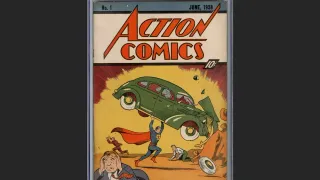July 3, 2014
Yosemite Celebrates 150th Anniversary
Matthew Wexler READ TIME: 3 MIN.
No one will ever top what Breanna Stewart did in college at UConn, winning four national championships and the Most Outstanding Player of the NCAA Tournament each time.
Her success sets her apart as the Greatest Of All Time, at least in the eyes of nearly a dozen players and coaches at a USA Basketball camp this month. When asked who they believe tops their list of college players during the last 50 years of the women’s poll era, Stewart was their choice.
“That's unheard of,” said Kahleah Copper, who starred at Rutgers at the same time Stewart was dominating at UConn. “That's super tough. I'm thinking about someone's individual success, but also they had to have success as a team. It's not just about your individual successes.”
That is part of what makes it such an entertaining debate. It is hard to argue with Stewart's success, but others could challenge for the G-O-A-T title.
As part of its season-long coverage of the 50-year anniversary of the poll, a panel comprised of former players, coaches and AP journalists voted on the greatest college players during the poll era. Stewart, Cheryl Miller and Diana Taurasi headlined the list along with Caitlin Clark.
Stewart, Taurasi and Clark were mentioned by many of the players at the camp, which reflected a youth movement in USA Basketball. Many of their answers to the question seemed to reflect an out-of-sight, out-of-mind thought process as they tended to focus on players they saw play during their lifetime or former greats at their respective colleges, or who they had heard about.
Paige Bueckers had Stewart, Maya Moore, Taurasi and Candace Parker on her Mount Rushmore of college players.
“I think they are the ultimate competitors and winners. They’ve all won multiple national titles,” Bueckers said. “The way they lead and carry themselves.”
There was a tinge of appreciation for some of the game's pioneers like Miller, Anne Meyers, Nancy Lieberman and Lisa Leslie.
USA Basketball coach Kara Lawson starred at Tennessee in the late 1990s when the Lady Vols were winning national championships. She played with some of the best in the history of that program before becoming Duke's coach, and she was a top analyst for ESPN, too.
Her starting five was “Cheryl Miller, Chamique Holdsclaw, Diana Taruasi, Candace Parker and Breanna Stewart."
Sue Bird, among the players chosen for the AP’s all-time team, felt that “being able to carry a team to a championship or really far in the tournament,” was huge. She had Stewart, Taurasi, Parker, Miller and Clark near the top of her list.
While winning was the most important thing to players, many also said it was important what a player had done for the sport as a whole.
“Winning is a big part of that of course, but you know, when I think of them, they went on to just be really phenomenal players and people. I think also what they've done for the sport in general,” said Cameron Brink, who chose Parker, Stewart, Jennifer Azzi and Dawn Staley.
UCLA center Lauren Betts, currently one of the best college players in the country, not surprisingly favored post players. The 6-foot-7 Betts picked two recent icons who have inspired her — Aliyah Boston and A’ja Wilson.
“Amazing to just admire two people that are just such amazing people off the court and they’re just so dominant inside,” Betts said.
Longtime analyst Deb Antonelli, who was on the AP voting panel to choose the greatest college players, said it wasn't the current players' fault for not knowing about some of the past greats who didn't get the television or social media exposure current players do.
“It's a great frame of reference for how much the game has grown and the appreciation and gratitude for where they get to be,” she said. “What they get to do now was built on the shoulders of past greats like Ann Meyers, Nancy Lieberman and Cheryl Miller.”






